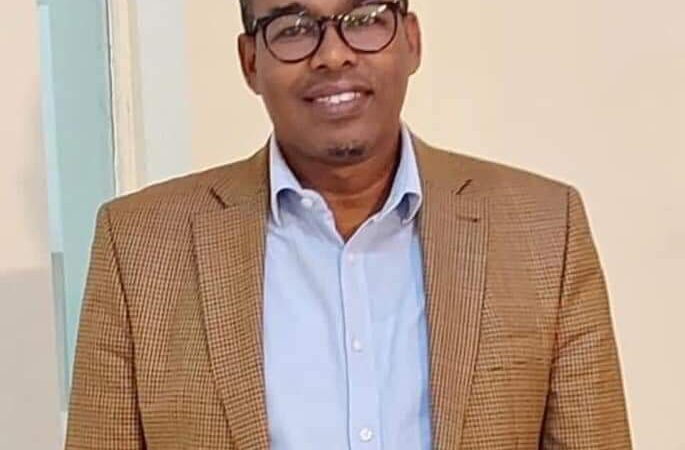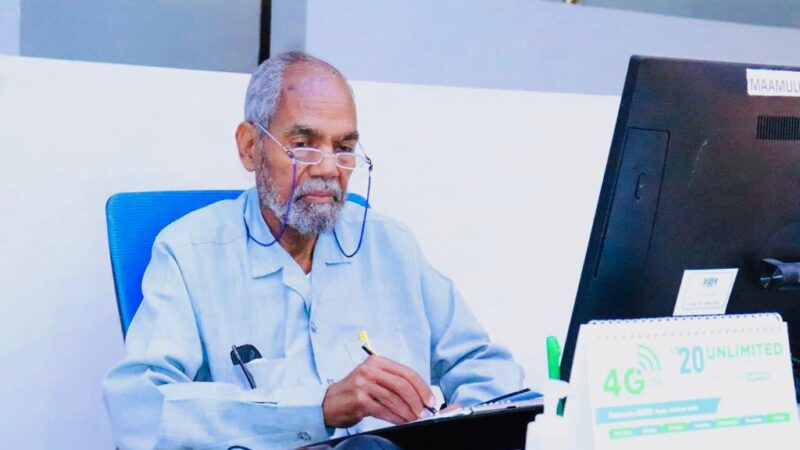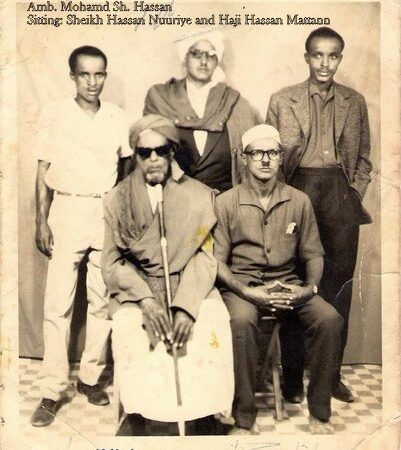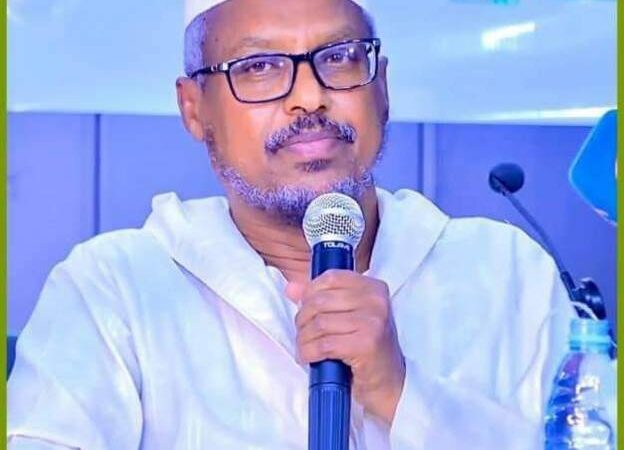Remembering the Figure of Patriotism: Saado Ali Warsame

Today marks ten years since the day Saado Ali Warsame was assassinated in Mogadishu, Somalia. Whenever we hear the name of Saado Ali Warsame, we are likely to remember someone who was not only popular for Somali music but also a symbol of nationalism, justice and unity. Saado was born in Las Anod in 1950, and she was a Somali singer/songwriter and politician. She served as a lawmaker in the Federal Parliament of Somalia representing Sool region. A prominent figure in traditional Somali music, her art and legislative work were centered on political and social justice. This piece is about remembering the great life and contribution of Saado Ali Warsame.
Saado was one of the best Somali singers/songwriters of all time. She was seen singing alone by Said Salah Ahmed, a renowned Somali poet and currently a professor of literature in one of the universities in Minneapolis, MN, and a gave a chance to start her victorious musical career. Not only she was a singer, but also a popular actor representing numerous plays. During golden music age of Somalia, she was a member of Waaberi band which was the leading band at the time. When the Somali nation destroyed in 1991, she moved to the United States where she spent 20 years of her life. She once said, “I do not consider those 20 years as a part of my life. I have been badly affected by homesickness, and I always begged Allah to return me to my country in order to enjoy living in Mogadishu with family and friends”. This showed how much she loved her country. Sadly, she was assassinated in Mogadishu by Al-Shabab.
As she was a popular singer and a nationalist, she typically exhibited a combination of characteristics that define both her musical success as well as patriotic stance. she possessed exceptional vocal ability and musical talent, coupled with a charismatic stage presence that captivates audiences. Her repertoire included hit songs that resonate with a wide audience, and she effectively used media platforms to maintain visibility and connect with fans. Memorable and energetic live performances, versatility across different genres and styles, and a large, dedicated fan base further enhance Saado Ali Warsame’s popularity.
Saado Ali Warsame was also a singer who exceled in love songs possessing a blend of emotional depth, vocal range, and expressive delivery, allowing them to connect deeply with listeners. Her songs feature relatable lyrics and authentic emotion, making the feelings in her music believable and impactful like Raggu Naago Jecelaa, Xamdi, Baxsanoow Daraadaa and many others. She had a talent for storytelling, crafting engaging narratives within her songs, and showcase versatility by performing across various sub-genres of love songs.
As nationalists, Saado demonstrated a strong sense of love and loyalty towards her country, Somalia, often using her platform to promote national culture, heritage, and values. She was engaged in political activities or movements that align with nationalist ideals and make public statements on issues of national importance. National symbols and themes are frequently incorporated into her music and performances. Additionally, she participated in community and national events, often serving as representative or ambassador of her country, and advocate for policies and actions that she believed would benefit her nation. Combining these aspects, Saado Ali Warsame used her popularity and influence to inspire national pride and unity while maintaining successful careers in music.
Unlike other artists of her generation, Saado was never silent when it comes to injustice. She similarly opposed some systems that were not handled easily included Somalia’s military government in the last century, Al-Shabab and Somaliland. She wrote and sang songs and acted plays to shed light how military regime misused power back in 1980s. Her extraordinary song “Laand Karuusar” criticized kleptocracy in the ruling military junta. She also blamed incompetent management for infrastructural dilapidation of public funds. Additionally, Saado was one of several prominent Somali artists that took part in the long-running “Deelley” serial poem. She used the opportunity to defend the cause of northerners from the increasingly authoritarian southern-based regime.
On the other hand, Somaliland which is self-declared republic occupied Saado Ali’s home region Sool in 2007. She was deeply grieved by how secessionists tried to separate Somalia into two. She wrote many songs to urge her people o fight against Somaliland. Such songs have inspired SSC-Khatumo’s fighters by boosting morale, fostering unity, spreading messages, preserving cultural identity, and providing emotional expression. They serve as powerful tools for motivation, solidarity, and communication, often reflecting the heritage and emotional experiences of those in struggle. The most notable example was the song called ” Jiilka Darwiishkoow. This song inspired hundreds of thousands from Saado Ali’s clan to fight against Somaliland. Other notable examples included Libdhimeyside Laas Caanood, and Laba maahaa Waddankeennu” which illustrated how music can encapsulate the spirit of resistance and connect current fighters to a broader historical narrative of fighting for freedom and justice. Surprisingly, such songs inspired SSC fighters to remove Somaliland troops from Sool region and built a state of their own 9 years after Saado Ali’s death. This is simply what Saado dreamed to see one day, but sadly she belongs to the ages now.
Saado Ali’s children live in the United States, but many of her family members remain in Somalia and Northeastern Kenya where Somali people inhabit. A biography of her was written by Yusuf Hassan covering almost everything about the Saado.
Finally, Saado Ali will forever be remembered and I beg Allah to remove all of her sins and reward her the highest paradise.
Hamza Yassin






